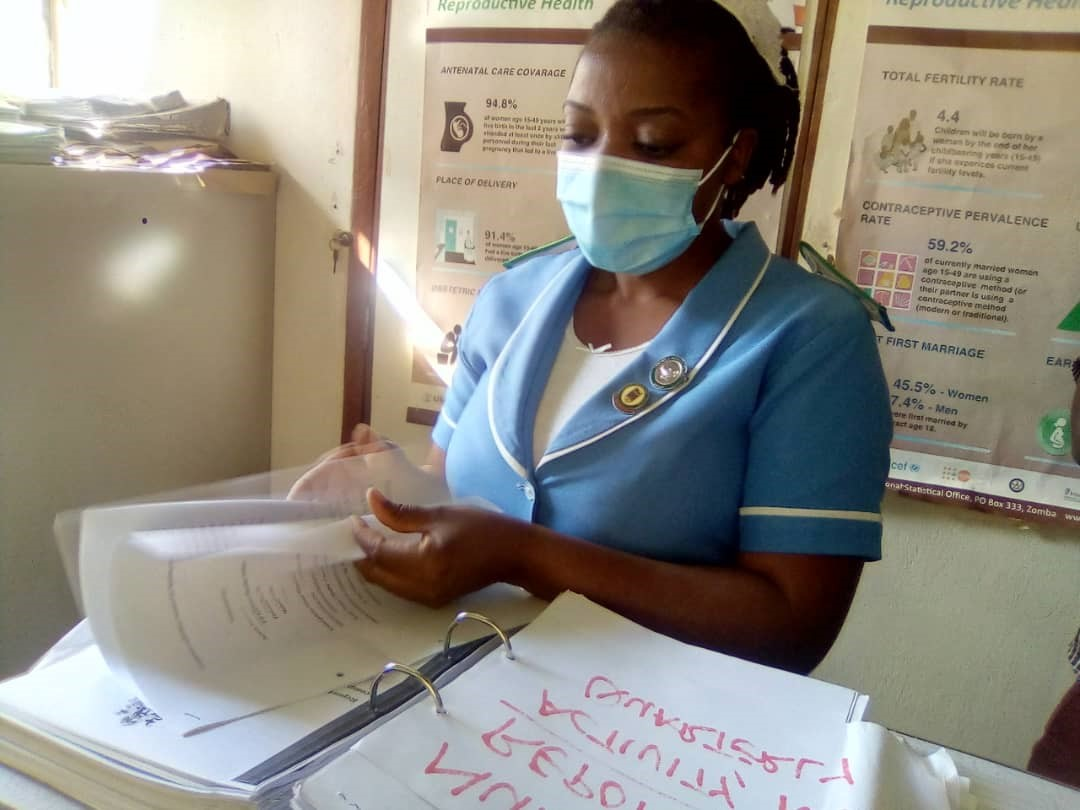Integrating periodic data reviews in health facility interventions towards achievement of primary health care outcomes in Malawi
Malawi is among the pathfinder countries under the Global Network for Improving Quality of Care for Maternal, Newborn and Child Health supported by the World Health Organization (WHO), the United Nations Children’s Fund (UNICEF), and the United Nations Population Fund (UNFPA). The goal of the network is to halve maternal and newborn deaths and stillbirths and improve the experience of care in participating health facilities and countries by the year 2022. To realize the objectives of the network, the Malawian Ministry of Health integrated the nine maternal and newborn health quality of care standards in health facilities as provided for by the national quality of health care policy and strategy. The nine maternal and newborn health quality of care standards are implemented in nine learning districts by Quality Improvement Support Teams and Work Improvement Teams. Through its collaborative leadership, WHO has led efforts to better align maternal and newborn health quality of health care support under the UN Joint Project with UN partners—WHO, UNICEF and UNFPA—with similar work supported by the Deutsche Gesellschaft für Internationale Zusammenarbeit (GIZ). With generous financial support from the Foreign, Commonwealth and Development Office (FCDO), through the UN Joint Project, Malawi has improved data availability and use.

How did Malawi do it, and how did the WHO Secretariat support Malawi?
Throughout the 2020-2021 biennium, WHO provided technical support and financing of the maternal and newborn health quality of care interventions, including training, coaching and mentorship as well as evidence-based reporting on progress of the implemented quality improvement projects. This formed part of the coordinated support Malawi received from WHO and the Global Action Plan for Healthy Lives and Well-being for All (SDG3 GAP) and the Health Data Collaborative partner agencies under Accelerator theme 1: primary health care as well as Accelerator 7: data and digital health. Specific interventions included: development and adaptation of Quality of Care tools, maternal and newborn health standards and assessment tools, quality improvement training provided to 416 health workers from 14 districts, collaborative learning sessions for over 225 health workers from the nine learning districts, capacity building of governance structures, strengthening Quality Improvement Support Teams and Work Improvement Teams, and strengthening of data reviews. Further interventions included the maternal and newborn health QOC mentorship program targeting 53 mentees from the four districts of Kasungu, Mzimba South, Blantyre and Thyolo, comprising collaborative learning sessions based on the Leadership, Action, Learning and Accountability Framework for Quality Improvement.
Since rolling out the maternal and newborn health quality of care work in 2017, there has been limited systematic data reviews on maternal and newborn health quality of care indicators. Monthly data on maternal and newborn health indicators collected by health facilities in primary data collection tools was reviewed and verified along with monthly data reported in DHIS-2 platform. The data were key in guiding the monthly capacity building, coaching and mentorship programme implemented by WHO and the Ministry of Health Quality Management Directorate in nine districts. Participation enhanced ownership and use of maternal and newborn health data for planning and decision making by health workers in the targeted health facilities.
With the goal of using data to inform evidence-based decisions, health facilities collected data through the quality improvement programme to address causes of neonatal admissions, assess newborn, infant and child morbidity and mortality, monitor complications and address causes of maternal mortality and morbidity during pregnancy, labour and delivery as well as the postpartum period. To assess progress and impact of the maternal and newborn health QOC interventions, data on 25 QOC indicators was collected from July 2020 to June 2021, quality assured, and reviewed using participatory approaches in 140 health facilities (10 from each of the 14 districts). The process facilitated documentation of progress and achievements, identified gaps, enabled strategy revisions, as well as facilitated planning for the next year of interventions in the targeted districts.
The data quality assessment for selected health facilities revealed limited use of the WHO Data Quality Review toolkit due to lack of awareness of the tool. A lesson learned was that institutionalizing data reviews on a monthly and quarterly basis is critical to improving health services delivery and achieving targets of set indicators. Another insight gained is that continuous professional development on use of data collection tools is essential for new staff who continue to learn on-the-job.
With support from WHO’s regional office and headquarters in Geneva, plans are underway to complete phase II mentorships, continue with capacity building in quality improvement mentorship support both physical and virtually, measure progress in experience of care, and revise the QOC policy and strategic plan to align to the new Health Sector Strategic Plan III 2022-2030 currently under development.
The maternal and newborn health quality improvement interventions supported by WHO and other partners have empowered health workers in using data to analyse and respond to the root causes of maternal and newborn mortality and morbidity. With collaborative support from WHO’s regional office and headquarters, the WHO Country Office, Malawi will continue to improve the delivery of maternal and newborn health services with insights gained through enhanced data collection.
Photo Credit: © WHO Country Office in Malawi/Richman Gondwe
Photo Caption: A health worker retrieving documentation of mentorship activities in Phalombe Health Centre.
